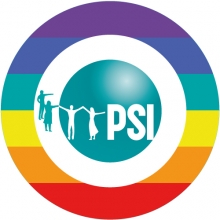LGBT rights at the workplace

While lesbian/gay/bi-sexual/transgendered (LGBT) workers’ and human rights are better protected now than ever before in many countries – discrimination and violence against LGBT people is again on the rise both in the Western and developing world. In some countries, legislation outlaws LGBT relations or so-called gay propaganda. In others, impunity for violence committed against people who identify as gay or transgendered leads to growing numbers of crimes.
Some governments use discrimination against the LGBT minority as a "divide and rule" strategy with the support of certain religious or ultra conservative groups. Such policies are dangerous and contribute to more inequality and discrimination in a vicious and dangerous cycle, making governments accomplices with the criminals who attack and sometimes kill LGBT people.
LGBT workers’ rights are trade union rights, and trade union rights are human rights. That trade union rights are human rights is indisputable: the principle has been affirmed in a wide range of founding documents, beginning with the Universal Declaration of Human Rights of 1948.
The understanding that LGBT workers’ rights are trade union rights has gained ground throughout the international labour movement. However, many LGBT workers have not joined (or joined and then left) unions which have failed to address their concerns. Recruiting and retaining LGBT workers who have until now remained outside the orbit of the labour movement will benefit a union’s size, negotiating strength and representative capacity.
Similarly, supporting and developing LGBT activists will further increase the union’s relevance to LGBT communities and initiate a “virtuous circle” whereby increased LGBT visibility strengthens not only recruitment of LGBT workers, but also their counterparts in other communities: indeed, the more diverse and less monolithic a union shows itself to be, the more effectively it will be able to recruit from a broad range of equity-seeking communities.
The global union federations Public Services International and Education International have done a considerable amount of joint work to advance LGBT equality. Today, trade unions are involved in national and international work to protect LGBT workers’ rights, in the same way they take action to protect many groups and individuals who face prejudice and discrimination.
PSI and EI will renew joint LGBT activities by organizing a trade union planning and coordination meeting on 30 July in Brussels and taking part in the Human Rights Conference (HRC) of the Outgames in Antwerp, 31 July-2 August 2013.
A PSI-EI delegation will take part in the conference and participate in several panels, providing daily reports. In the near future, the PSI-EI manual on LGBT workers’ rights will be updated and country reports will be developed. If you’d like to be part of the PSI LGBT network, please contact Sandra Vermuyten, PSI Equality and Rights officer, rights@world-psi.org

